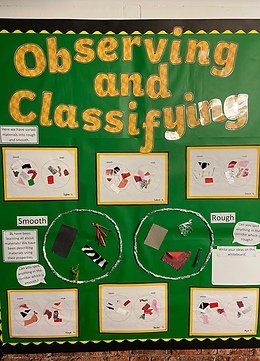
Science at Ladybarn
and at our other Trust schools
Intent
We harness children’s natural curiosity about the world around them by encouraging them to be inquisitive and excited for future possibilities in science. We aim to equip children with the scientific knowledge and practical skills in science to enable them to adapt and flourish in an increasingly scientific world both today and in the future.
“Science is a wonder. It's like poetry and music and yet people don't see it that way.”
Dr Maggie Aderin-Pocock, British space scientist
At Ladybarn we harness children's natural curiosity around the world around them by encouraging them to be inquisitive and excited for future possibilities in science.
Our science curriculum is based around the National curriculum. We aim to equip children with the scientific knowledge and practical skills in the disciplines of biology, chemistry and physics to enable them to adapt and flourish in an increasingly scientific world both today and in the future. In order to work as scientists in the classroom, children develop systematic scientific enquiry throughout their time at school, ensuring the skills are built-on and developed at an age-appropriate level.
Our Pupils Say...







What’s that? What’s this? How? Why? Investigate. Explore.
That is how our curriculum works, each unit has a key question threading throughout and a key investigation the children must complete. Our children are encouraged to think like scientists. Why? Because they are scientists. In lessons we might ask questions, predict, observe, identify, research, test, evaluate and make conclusions. We do all this to develop our scientific knowledge and skills. Our curriculum is progressive, it builds upon existing knowledge and moves through the three scientific strands of biology, chemistry and physics, with the concept of scientific enquiry threading through all units. We want our children to ask questions about the world around them, the one they live in. Science is taught every week and each lesson is between one and two hours.
So what do we do?
Understanding the World in EYFS - we look at changing the colour of water and predict what colour it will change into.

In Chemistry, in Key Stage 1 we sort and classify the properties of different materials

In physics in Key Stage 2, we investigate the correlation between the brightness of a bulb and the amount of batteries in a circuit.

In Reception we are always exploring our natural world.

In Biology in Key Stage 2 we investigate what effect liquids have on eggs.

In Key Stage 2 we also study how refraction can affect the way an object is perceived through a glass of water

So, what's next?
Scientists of the Future. Scientists NOW!
Our children will be the ones who help to solve climate change, create sustainable solutions to our current plastic problem, new ways to recycle more, save the animal habitats, discover a solution to pollution and invent a cure for a debilitating disease.
And where does it start? In our Nursery.
